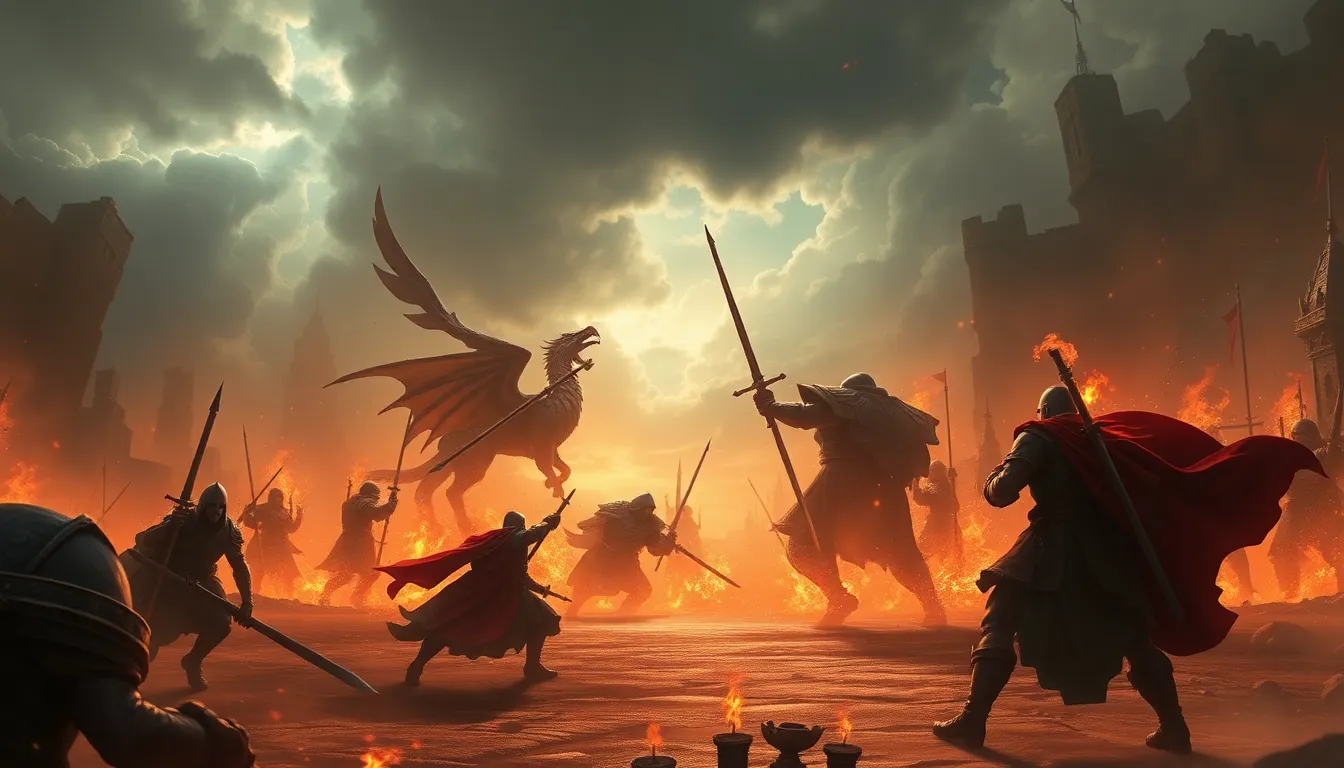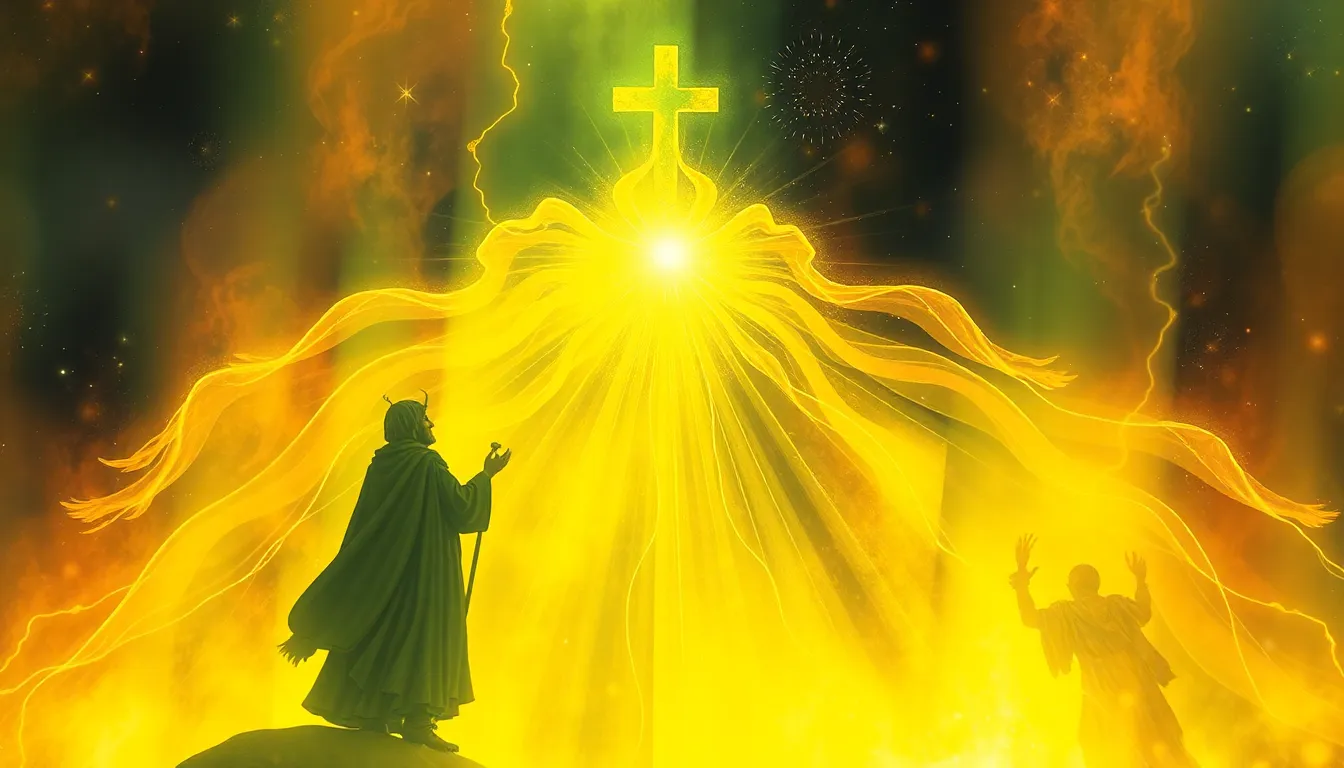Epic Battles and Legendary Quests: The Myths of War
I. Introduction to the Myths of War
The term “myth” often evokes images of ancient stories filled with gods, monsters, and heroic deeds. In the context of war, however, it encompasses more than just fictional tales; it refers to the powerful narratives that shape our understanding of conflict and valor. Myths about war serve to glorify battles, commemorate heroes, and provide moral lessons that resonate through generations.
Storytelling has always played a crucial role in human society, and in the realm of warfare, these narratives can influence public perception, inspire soldiers, and justify actions taken in the name of conflict. This article will explore the rich tapestry of epic battles and legendary quests that have defined the myths of war throughout history.
II. The Historical Context of War Myths
War myths have their roots in the earliest civilizations, where stories of valor and heroism were woven into the fabric of society. The following sections will delve into the historical context of these myths:
- Ancient Civilizations and Their War Legends: The Greeks celebrated heroes like Achilles in the “Iliad,” while the Romans chronicled the exploits of their generals. Norse myths depicted valiant warriors like Odin and Thor, who engaged in epic battles.
- The Evolution of War Myths Through the Middle Ages: As societies became more complex, so did their myths. The chivalric tales of the Middle Ages, such as those of King Arthur and the Knights of the Round Table, emphasized honor and loyalty in warfare.
- The Impact of Colonialism on War Narratives: Colonial powers often created myths to justify their conquests, portraying themselves as noble saviors bringing civilization to the “savage” lands.
III. Iconic Epic Battles in History
Throughout history, certain battles stand out not only for their military significance but also for their mythic qualities:
- The Battle of Thermopylae: This battle, fought in 480 BC, symbolizes heroism and sacrifice. The valiant stand of 300 Spartans against the Persian army has become a legendary tale of courage against overwhelming odds.
- The Siege of Troy: While rooted in the epic “Iliad,” the events surrounding Troy blend myth and reality, raising questions about the nature of heroism and the cost of war.
- The Battle of Hastings: In 1066, this battle marked the Norman conquest of England. Its consequences reshaped English society and culture, and it has been immortalized in art and literature.
IV. The Role of Legendary Heroes in War Myths
Legendary heroes are central to the myths of war, embodying the values and ideals of their cultures:
- Analysis of Figures: Heroes like Achilles and Hector represent the extremes of valor and tragedy, while King Arthur symbolizes noble leadership.
- The Archetype of the Hero: In wartime narratives, heroes often face impossible odds, embodying the struggle between good and evil.
- The Influence of Cultural Values: The portrayal of heroes is often a reflection of societal norms, emphasizing traits such as loyalty, bravery, and sacrifice.
V. Quest Narratives in the Context of War
Quests are significant elements of mythology, particularly in relation to war:
- Definition and Significance: A quest often involves a hero’s journey toward a goal, usually involving trials that test their character and beliefs.
- Examples of Legendary Quests: The Quest for the Holy Grail is a prominent example, symbolizing the search for divine truth amid chaos and conflict.
- The Relationship Between Quests and Moral Implications: Quests often present moral dilemmas that reflect the complexities of war and the consequences of violence.
VI. Mythological Creatures and Their Symbolism in War
Mythological creatures play a vital role in the narrative of war, representing various aspects of the human psyche:
- Dragons, Griffins, and Other Beasts: These creatures often symbolize the fears and challenges faced in battle, embodying the chaos of war.
- Fear and Courage: Creatures in war myths can represent the duality of fear and courage, illustrating the inner struggles of warriors.
- Analysis of Specific Myths: For instance, the dragon in many cultures symbolizes not just a foe to be defeated but also the inner demons of the heroes themselves.
VII. The Influence of War Myths on Modern Warfare
Even in contemporary conflicts, the echoes of ancient war myths can be felt:
- Historical Myths in Military Strategy: Military leaders often draw inspiration from legendary battles to boost morale and strategize.
- Modern Conflicts and Legendary Quests: The narratives surrounding modern warfare sometimes mirror the heroic quests of the past, invoking similar ideals of valor.
- The Role of Propaganda: Governments use war myths to craft narratives that justify military actions and rally public support.
VIII. War Myths in Literature and Popular Culture
War myths have permeated literature and popular culture, shaping perceptions of conflict:
- Exploration of Epic Literature: Works like “The Iliad” and “Beowulf” not only depict battles but also explore the human condition in times of war.
- Depictions in Films and Video Games: Modern media often dramatizes war myths, influencing how audiences perceive the realities of warfare.
- Effects on Public Perceptions: These portrayals can romanticize war, creating a disconnect between the myth and the often grim reality.
IX. Critiquing the Myth of War: Truth vs. Fiction
While myths offer valuable insights into human nature and societal values, they can also obscure the harsh truths of war:
- Distinction Between Truth and Fiction: It is essential to critique the glorified narratives of war, recognizing the suffering and moral complexities that often accompany conflict.
- Challenges of Understanding War: The romanticized view of warfare can lead to a lack of understanding of its true consequences on individuals and societies.
- Call for a Balanced Perspective: Acknowledging both the myths and the realities of war provides a more nuanced understanding of its significance in human history.




